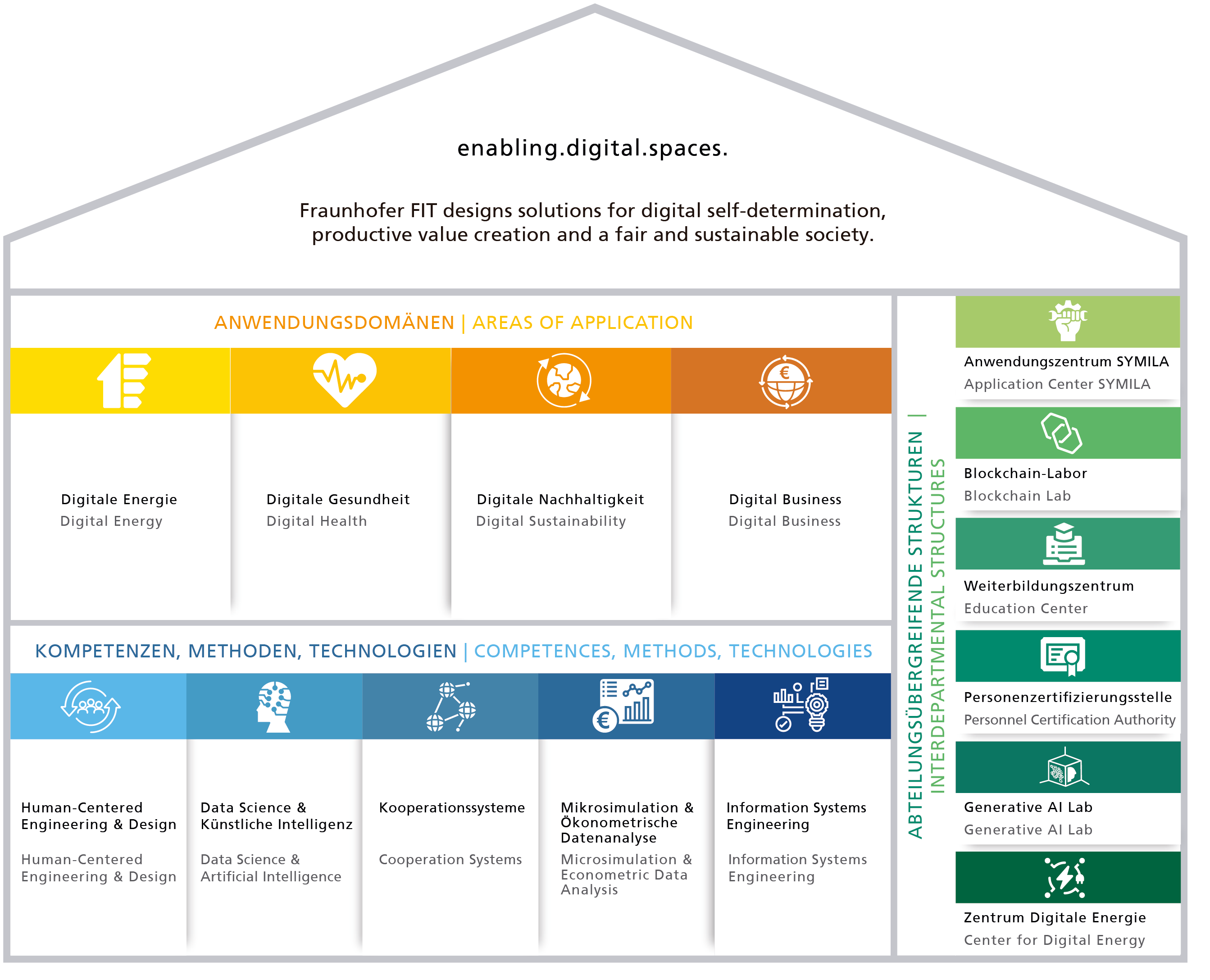enabling. digital. spaces.
As a partner for digitization, Industry 4.0 and the Internet of Things, the Fraunhofer Institute for Applied Information Technology FIT has been developing IT solutions tailored to people and seamlessly integrated into business processes for 40 years. As a driving force of innovation, FIT not only provides guidance, but also shapes the digital transformation in business, the environment and society.
FIT’s interdisciplinary R&D teams are drawn from our staff of around 400 scientists from computer science, social science, business administration, economics, psychology, and engineering. They bring their expertise in designing and implementing information technology systems to bear on problems and needs from different areas of life.
Our specific strength is our holistic approach to system development – from concept validation to implementation. We strategically evolve our expertise in IT, specific application fields, and our scientific excellence with the aim to be ahead of the market for our customers from industry and administration. We focus on four application domains: Digital Energy, Digital Health, Digital Sustainability and Digital Business – each of outstanding importance for Europe’s future.
Each of FIT's informatics departments is built around one of our five core competencies:
- Human-Centered Engineering & Design will pursue the institute's renowned research in this field to support companies in developing user-friendly interactive systems;
- Data Science & Artificial Intelligence drives the digital transformation by processing, organizing and analyzing data and knowledge more systematically and flexibly than before. Our senior scientists have internationally renowned expertise in process mining and semantic data integration;
- Cooperation Systems focuses on a research field that has been a mainstay of Fraunhofer FIT: Collaboration and the cooperative use of distributed data or services on different levels – for example, using Mixed Reality or Blockchain technology;
- Microsimulation & Econometric Data Analysis will continue to provide the German federal government with evidence-based predictions on the impact of political decisions, such as tax revenue forecasts that take demographic change into account;
- Information Systems Engineering explores the use of digital technologies in business organizations via software and hardware demonstrators, assists with the selection and implementation of complex enterprise software, and develops concepts for management issues in the IT environment.

